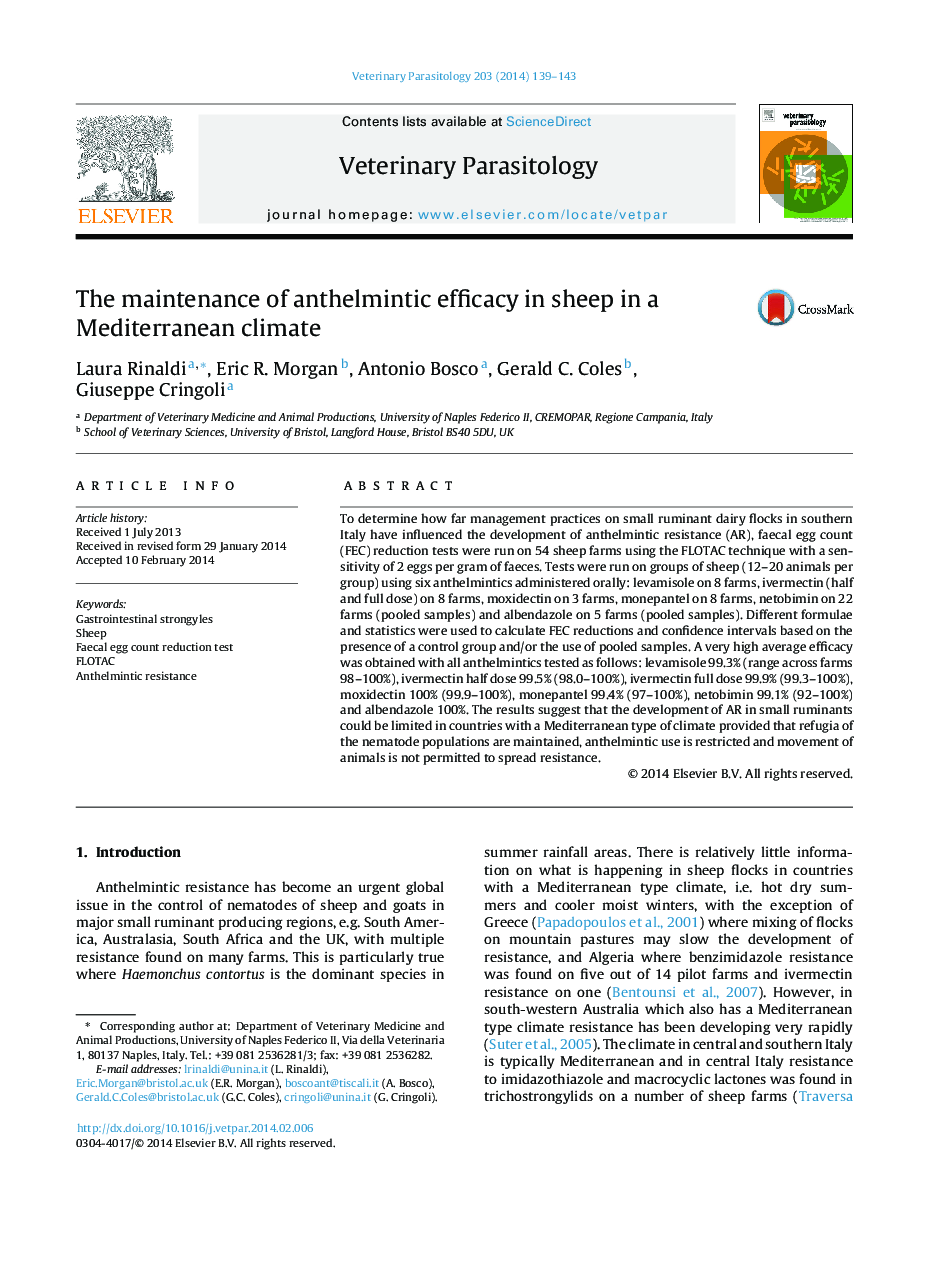| کد مقاله | کد نشریه | سال انتشار | مقاله انگلیسی | نسخه تمام متن |
|---|---|---|---|---|
| 5803354 | 1555685 | 2014 | 5 صفحه PDF | دانلود رایگان |
To determine how far management practices on small ruminant dairy flocks in southern Italy have influenced the development of anthelmintic resistance (AR), faecal egg count (FEC) reduction tests were run on 54 sheep farms using the FLOTAC technique with a sensitivity of 2 eggs per gram of faeces. Tests were run on groups of sheep (12-20 animals per group) using six anthelmintics administered orally: levamisole on 8 farms, ivermectin (half and full dose) on 8 farms, moxidectin on 3 farms, monepantel on 8 farms, netobimin on 22 farms (pooled samples) and albendazole on 5 farms (pooled samples). Different formulae and statistics were used to calculate FEC reductions and confidence intervals based on the presence of a control group and/or the use of pooled samples. A very high average efficacy was obtained with all anthelmintics tested as follows: levamisole 99.3% (range across farms 98-100%), ivermectin half dose 99.5% (98.0-100%), ivermectin full dose 99.9% (99.3-100%), moxidectin 100% (99.9-100%), monepantel 99.4% (97-100%), netobimin 99.1% (92-100%) and albendazole 100%. The results suggest that the development of AR in small ruminants could be limited in countries with a Mediterranean type of climate provided that refugia of the nematode populations are maintained, anthelmintic use is restricted and movement of animals is not permitted to spread resistance.
Journal: Veterinary Parasitology - Volume 203, Issues 1â2, 16 June 2014, Pages 139-143
